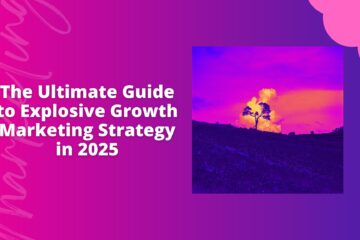5 Benefits and Uses of Marketing AI You Need To Know About
Definition of Artificial Intelligence
Artificial intelligence is exactly what it sounds like. It’s the attempt to give computers, devices or machines with the ability to “think” and process knowledge like humans, but obviously much more quickly and efficiently.
It’s been a field of study and interest since the mid-1950s.
Related Content: Is Artificial Intelligence Better at Marketing Than Humans?
Perhaps you’ve heard phrases like machine learning, deep learning (“machine learning method based on learning data representations”), and natural language processing (“the ability to read and process human language”).
Or even seen some of the many depictions of AI in pop culture. Movies and shows like Ex-Machina, 2001: A Space Odyssey, Westworld, Tau, and Extinction.
Real-Life Artificial Intelligence Examples
Examples of AI are already all around us.
Digital assistants Siri and Cortana are two extremely well-known examples right in the palms of many people’s hands via their smartphones.
Smart devices Alexa and Google Home have also penetrated a large number of homes in the U.S. The data these examples gather based on regular interactions with users enables them to “learn” over time. Our preferences, our habits, even our ways of speaking are all picked up on to help provide a better experience (among other things).
What about the algorithms employed by online services such as Netflix, Amazon, YouTube, Instagram or Spotify to help deliver customized content based on your historical use of these platforms?
As marketers, we’re already interacting with AI regularly as we craft and hone an SEO strategy that will work nicely with Google’s search result algorithms.
There’s a broad amount of knowledge and applications, and marketing AI is already getting buzz for being a huge step forward for businesses to start harnessing all the data they’ve accumulated in a way that will benefit the customer experience.
A Dark Side to Marketing AI?
But there’s a mix of optimism and apprehension when it comes to the future of AI.
Most express concern over whether AI holds potential to “steal” jobs from humans through automation.
Others also discuss more philosophical or conceptual concerns.
Some of the pop culture references mentioned above in this article provide chilling depictions of the possible negative aspects of the relationship between humans and AI in the distant future. Who could forget HAL 9000, the AI-system-gone-wrong in 2001: A Space Odyssey? Or the ethical questions around AI and potential sentience in movies like I, Robot?
Related Content: A Crash Course on Virtual Influencers
In real life, technologists Stephen Hawking, Bill Gates and Elon Musk each expressed concerns about the direction AI could take.
Hawking noted, “Success in creating effective AI, could be the biggest event in the history of our civilization. Or the worst. We just don’t know. So we cannot know if we will be infinitely helped by AI, or ignored by it and side-lined, or conceivably destroyed by it.”

There have been alarming signs that AI might not be as well behaved as we’d like. Researchers have noted unpredictable activity by AI on multiple occasions, such as “finding loopholes” or hacking. For example, a recent article detailed an incident where an AI managed to figure out how to cheat in order to beat another bot in a game.
“Seeing these systems be creative and do things you never thought of, you recognize their power and danger,” said Uber AI lab reseacher Jeff Clune.
There’s also the issue of bias as a result of flaws in machine learning, which is already evident in algorithmic prejudice experienced on social media.
Related Content: Influencer Industry Reveals That Algorithms and AI Show Signs of Bias
Marketing AI Benefits & Advantages
Whatever the future brings, marketing AI already holds plenty of advantages for businesses.
Here are some benefits of marketing AI and digital marketing trends that fall within this category:
1. Programmatic Digital Advertising Strategy
Many brands already know the value of claiming the right positions on digital channels, whether that’s search results or the like, which is why programmatic advertising and media buying is such a valuable space right now.
Programmatic is making good use of data to figure out what to bid and spend to make digital advertisement strategy more competitive and effective. Marketers can allow computer thinking to make these complex decisions rather than trying to figure it out or just guessing.
What’s more, the results of these campaigns can be more closely tracked to determine if key performance indicators are meeting expectations, with better reporting driven by AI, which allows marketers to proactively make adjustments in real time that impact these results to more aggressively pursue goals.
2. Lead Scoring and Profiles
While many marketers already have a vast quantity of data at their disposal, it’s knowing how to apply it and when that’s the murky part of things. Marketing AI allows information to be categorized and stored in a much more structured and sensible way. In fact, 41% of CMOs already use marketing AI for customer segmentation.
It’s what will enable many of the other uses of marketing AI to overhaul the way brands and consumers interact.
By getting to know our audience more closely, the details that matter when it comes to providing what they want from us when they want it, we’re able to generate truly valuable insight and actions from the data in our databases.
Building these profiles and automating these tasks also creates opportunity for a better relationship between marketing and other departments, like sales.
More efficiency in the sales funnel and marketing automation processes means less strife between departments.
3. Customer Experience Personalization
Personalization is a word that is used over and over, and that’s with good reason. Consumers rate personalized experiences more highly than generic. They’re willing to pay more for personalization, and it helps create brand loyalty in an era during which customer loyalty is difficult to earn.
By using those marketing-AI-enhanced customer or lead profiles mentioned under the previous point, marketers can better plug in details that allow customers and leads to feel like a brand is accommodating their individual needs.
This goes beyond just the “Hello {First Name}” email marketing personalization strategy that many brands currently rely on and into more refined territory, like YouTube customizing a user’s dashboard based on viewing patterns.
As another example, at the end of each year, Spotify creates a playlist for my account that combined all the tracks I listened to most frequently throughout the year. It makes me feel special, not to mention the fact that the playlist contains content that is clearly most enjoyable for me based on historical data.
Related Content: How Spotify Uses Personalization & Data to Beat Competition
Interactions like this help brands stand out and earn points with audiences.
These are the kinds of things that marketing AI can enable: delighting customers and leads by providing businesses with predictive information based on previous data collection. And then businesses can use that to inform their content strategy.
In other words, all those previous actions I took while using Spotify were accumulated and analyzed through AI. All those data points from the platform’s millions of users wouldn’t be easily and efficiently processed by humans. Add AI into the mix and suddenly that data becomes useful.
Now Spotify’s product and marketing teams can confidently say that based on my listening history, I should be shown more pop hits than bluegrass titles. And that more marketing podcasts should be featured on my home page.
Not to mention they can pull cumulative data on broader user segments broken out by any demographic to decide future areas of investment.
4. Content Creation and Distribution
The demand for more content creation continues to grow. Many brands struggle to keep up, especially small businesses and startups, which has led to looking for ways to become more efficient and strategic.
A form of marketing AI talked about quite often is AI copywriting.
A number of new solutions appeared over the past year or so that have put advanced natural language processing systems into practical use for marketers.
Most build on GPT-3, defined as a “language model that uses deep learning to produce human-like text.” It other words it’s a form of AI that can save marketers time by producing content and copywriting that sounds like they wrote it themselves.
Related Content: I Tested AI for Copywriting. The Results Surprised Me.
As these become more advanced, more companies will get on board with them.
For now, they’re a great way for marketers to help lighten the load of the many writing tasks on our plates.
5. Proactive Communication and Customer Service
A whopping 82% of CMOs say their top reason for implementing marketing AI is improving customer experience and service. This area is the primary driver for marketing adoption of this technology.
Quality of customer service is the top factor when establishing buyer trust in a brand, according to a Zendesk survey. According to that same survey, two-thirds of B2B customers and half of B2C customers avoided a brand after a negative customer service experience, even up to two years down the line. Speedy responsiveness and resolution are identified as top determinants of good versus bad service.
Allowing marketing AI, such as chatbots, to interact with customers has been proven to be a good way to supplement a service strategy.
These chatbots and AI messaging systems are getting so sophisticated that it will soon be difficult to tell the difference between a human and AI customer service representative.
Eventually marketing AI will evolve beyond just chatbots, though.
As technology advances, marketers will be able to take advantage of sophisticated systems that support customers throughout their entire customer experience.



